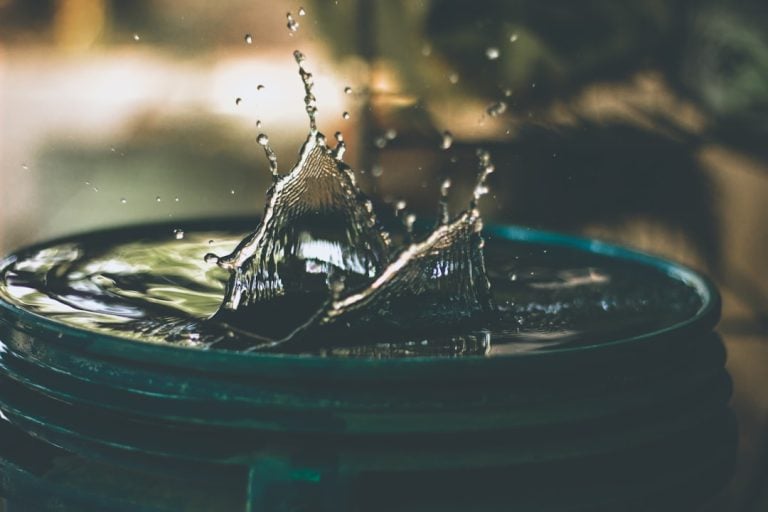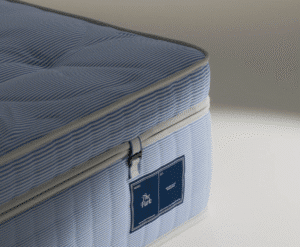The Definitive Guide to the Link Between Hydration and Sleep
Understanding the link between hydration and sleep is essential for overall health and wellness. Staying properly hydrated not only enhances physical performance but also significantly improves sleep quality. Conversely, dehydration can wreak havoc on your ability to fall asleep and stay asleep. This article explores the powerful benefits of hydration for sleep and offers actionable tips to strike the right balance.
The Relationship Between Hydration and Sleep Quality
Hydration is a crucial component that affects various bodily functions, including digestion, temperature regulation, and sleep quality. When you’re adequately hydrated, your body can restore chemical balances and encourage deeper, more restorative sleep.
Key Benefits of Staying Hydrated for Better Sleep:
1. Reduced Muscle Cramps: Adequate hydration minimizes muscle cramps and spasms during the night. These interruptions can significantly disrupt your sleep cycle.
2. Relief from Headaches: Dehydration often leads to headaches, making it challenging to both fall asleep and stay asleep.
3. Prevention of Dry Mouth and Nasal Passages: A well-hydrated body keeps your mouth and nasal passages moist, reducing discomfort that can lead to snoring or even sleep apnea.
4. Avoiding Early Morning Thirst: Waking up thirsty is a common indicator of dehydration. This interruption leaves you feeling sluggish and tired throughout the day.
In conclusion, maintaining optimal hydration levels ensures that these issues are less likely to disrupt your sleep.
How Poor Sleep Can Lead to Dehydration
Interestingly, the relationship between sleep and hydration is bidirectional. Not only does dehydration affect sleep quality, but poor sleep can also result in dehydration:
1. Hormonal Imbalance: During the late stages of sleep, your body produces vasopressin, a hormone that helps retain water. Disrupted sleep can impede the secretion of this hormone, making dehydration more likely.
2. Fluid Regulation Issues: Inadequate rest can impair your body’s ability to balance fluids effectively, leading to a dehydrated state.
3. Compromised Kidney Function: Chronic lack of sleep may even affect kidney function, which is critical for maintaining hydration levels.
Research indicates that limited sleep duration correlates with inadequate hydration, making it essential to prioritize both.
Signs and Symptoms of Dehydration Affecting Sleep
Recognizing the symptoms of dehydration can help you make necessary adjustments to enhance your sleep quality. Here are some signs to watch for:
– Dry Mouth: Waking up with a dry mouth is a clear sign of dehydration and can lead to discomfort at night.
– Muscle Cramps: Nighttime muscle cramps can be a painful reminder that your body needs more water.
– Frequent Urination: If you’re making multiple bathroom trips at night, it could indicate dehydration as your body struggles to retain fluid.
– Fatigue: Feeling unusually tired during the day can often be tied back to inadequate hydration.
– Dizziness: Lightheadedness can also signal dehydration, which is especially concerning in the morning.
Best Practices to Stay Hydrated for Better Sleep
Given the undeniable link between hydration and sleep, consider these practical strategies:
1. Hydrate Throughout the Day: Aim to drink around two liters of water daily. Having a reusable water bottle handy can serve as a reminder to hydrate regularly.
2. Limit Caffeine and Alcohol: Both substances have diuretic effects, which can lead to dehydration. It’s wise to avoid caffeine in the afternoon and limit alcohol use, especially before bedtime.
3. Monitor Your Urine Color: This simple check can indicate your hydration status. Light yellow or clear urine is ideal, while dark yellow may suggest a need for more fluids.
4. Incorporate Hydrating Foods: Foods like watermelon, oranges, spinach, and cucumbers can help maintain your hydration.
5. Set Reminders: If you struggle to remember to drink water, utilize alarms or hydration apps to prompt you throughout the day.
Preventing Nighttime Dehydration
To avoid waking up dehydrated, you can implement these additional tips:
1. Cool Your Sleeping Environment: Aim for a bedroom temperature between 60 and 67 degrees Fahrenheit to reduce sweating at night.
2. Wear Lightweight Pajamas: Opt for breathable fabrics to help regulate body temperature.
3. Limit Fluid Intake Before Bed: Avoid large amounts of liquids in the two hours leading up to sleep.
4. Manage Mouth Breathing: If you find yourself breathing through your mouth, using a humidifier can keep the air moist, preventing your mouth and throat from drying out.
5. Empty Your Bladder Before Bed: Make it a routine to use the bathroom before going to sleep, even if you don’t feel an immediate need.
Frequently Asked Questions about Hydration and Sleep
– Can dehydration cause sleep issues? Yes, dehydration leads to symptoms like muscle cramps and headaches, which can hinder your ability to sleep well.
– Does being hydrated help in bed? Absolutely! Proper hydration can improve sleep quality, but be cautious about overhydrating just before bedtime.
– How can one prevent dehydration during sleep? By drinking water throughout the day, avoiding excessive fluids before bed, and maintaining a cool sleeping environment, you can combat nighttime dehydration.
Conclusion
Hydration is integral to maintaining optimal health, and its influence on sleep is profound. Proper hydration not only ensures your body functions well throughout the day but also plays a crucial role in securing restful sleep at night. By being proactive about your water intake and recognizing the signs of dehydration, you can significantly improve both your sleep quality and overall well-being.
At Yawnder, we emphasize the importance of a good night’s sleep and are committed to helping you find the perfect mattress and bedding to complement your hydration efforts. By incorporating these strategies into your daily routine, you can enjoy more restful nights and productive days.
Key Takeaways:
– Staying well-hydrated supports sleep quality.
– Good sleep is critical for overall health, including hydration levels.
– Implementing daily hydration practices can transform your sleep experience for the better.
Prioritize both hydration and rest, and reap the rewards for your overall health and vitality.


















